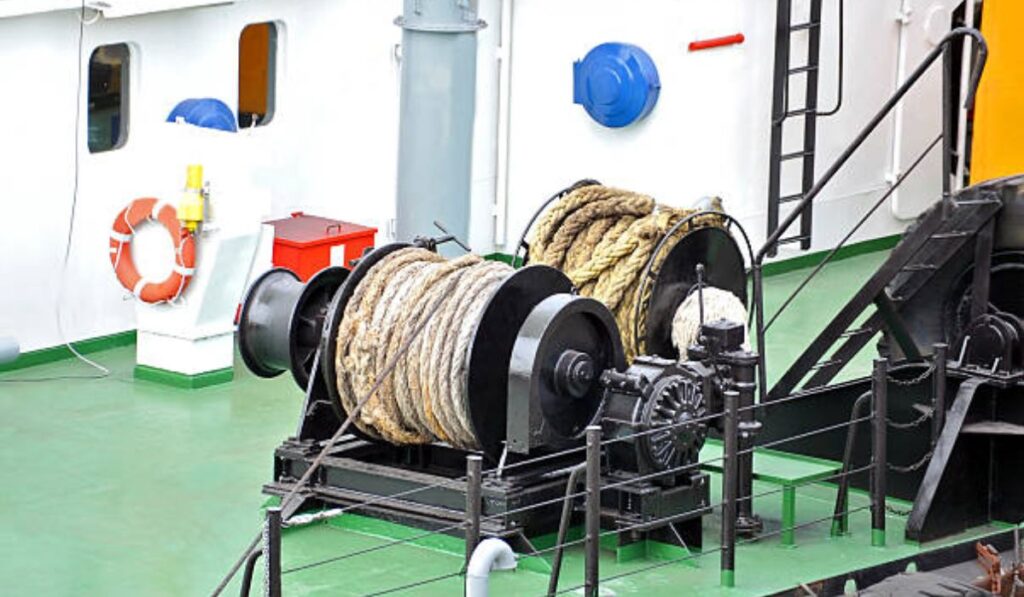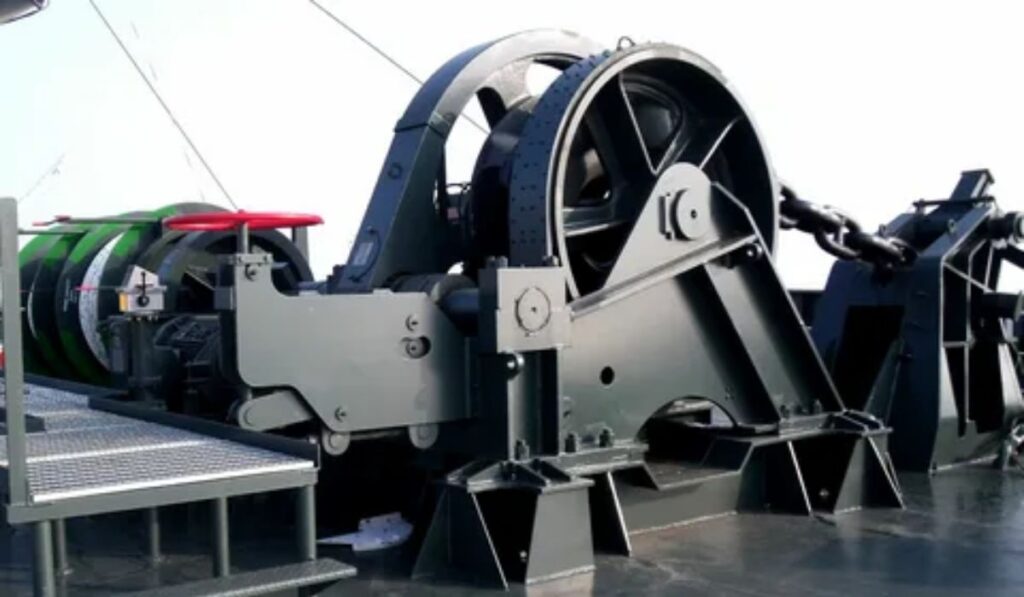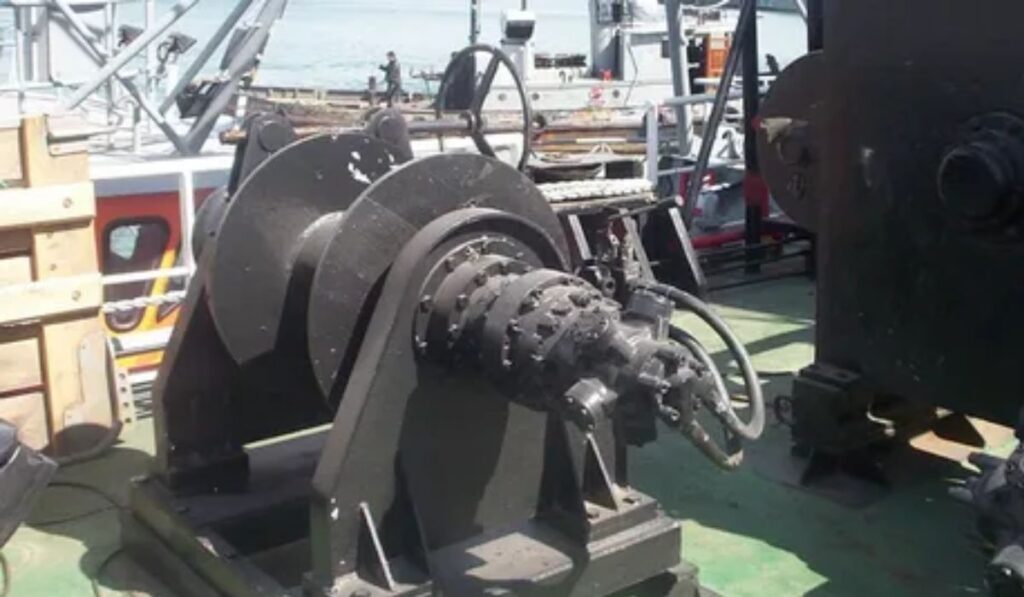Hydraulic deck machinery plays a crucial role in marine and offshore operations, ensuring smooth and efficient handling of cargo, anchors, and mooring systems. However, operating this powerful equipment requires strict adherence to safety measures to prevent accidents, equipment failures, and potential hazards. In this blog, let us discuss the essential safety precautions that should be taken when using machinery to ensure a secure working environment.

Proper Training and Certification
Before handling machinery, operators must be thoroughly trained and certified. Training should cover:
- Understanding the working principles of hydraulic systems
- Learning emergency shutdown procedures
- Safe handling of high-pressure hydraulic components
- Awareness of potential hazards and risk mitigation
A well-trained workforce minimizes the chances of operational errors and enhances overall safety on board.
Conduct Pre-Operation Inspections
Routine inspections before operating machinery are essential to identify potential issues that could lead to failures. Operators should check:
- Hydraulic fluid levels and potential leaks
- Hoses, seals, and connections for wear and damage
- Proper functioning of control systems
- Emergency stop mechanisms
Any faults detected should be repaired before using the machinery to prevent breakdowns and accidents.
Maintain Hydraulic Fluid Quality
Hydraulic systems rely on high-quality hydraulic fluids for optimal performance. Regular maintenance should include:
- Checking for fluid contamination
- Ensuring the correct viscosity and temperature levels
- Replacing hydraulic oil as per manufacturer guidelines
- Properly disposing of used hydraulic fluid
Contaminated or low-quality hydraulic fluid can lead to system malfunctions, overheating, and increased wear on components.
Wear Personal Protective Equipment (PPE)
Operators must wear appropriate Personal Protective Equipment (PPE) when working with machinery, including:
- Safety helmets to protect against falling objects
- Gloves to prevent hand injuries from hydraulic fluid or moving parts
- Safety goggles or face shields to protect from hydraulic fluid leaks
- Steel-toed boots to prevent foot injuries from heavy equipment
PPE serves as a critical defense against workplace injuries.
Implement Lockout/Tagout (LOTO) Procedures
When conducting maintenance or repairs, the Lockout/Tagout (LOTO) procedure should be followed to prevent accidental start-ups. This includes:
- Shutting down the hydraulic system completely
- Isolating energy sources
- Using lockout devices to secure switches and valves
- Displaying warning tags to alert other personnel
Proper LOTO procedures protect maintenance personnel from unexpected machinery activation.
Monitor Load Limits and System Pressure
Overloading machinery can lead to structural damage and failures. Operators should:
- Follow the manufacturer’s recommended load limits
- Monitor hydraulic pressure gauges to avoid exceeding safe operating levels
- Avoid sudden load shifts that could destabilize the system
Maintaining proper load management ensures the longevity of the equipment and prevents dangerous failures.
Be Aware of Environmental Conditions
Weather conditions at sea can impact the safe operation of machinery. Operators should consider:
- Avoiding machinery operation during rough seas if stability is compromised
- Protecting hydraulic components from saltwater corrosion
- Ensuring adequate visibility and lighting in low-light conditions
- Keeping decks dry and free from slippery substances
Taking environmental factors into account reduces the risk of accidents and machinery failure.
Establish Emergency Response Plans
Despite following strict safety protocols, emergencies can still occur. Every crew member should be trained in:
- Emergency shutdown procedures for machinery
- Fire suppression techniques in case of hydraulic fluid fires
- First aid response for injuries related to hydraulic equipment
- Communication protocols for reporting incidents
A well-prepared emergency response plan can prevent minor incidents from turning into major disasters.

In Conclusion
Ensuring safety when operating hydraulic deck machinery requires a combination of proper training, regular maintenance, personal protective measures, and adherence to safety protocols. For high-quality hydraulic solutions, Power Hydraulics is your trusted partner in ensuring efficiency and safety in marine hydraulic systems.



